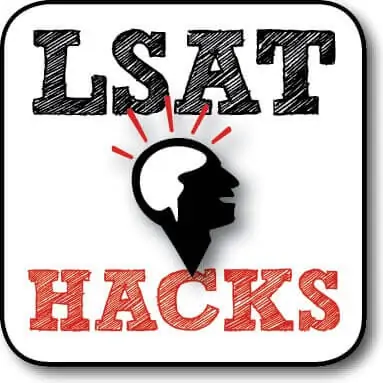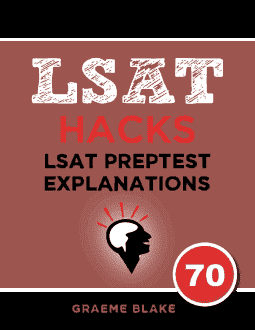QUESTION TEXT: Columnist: Although most people favor the bill and the…
QUESTION TYPE: Principle – Strengthen
CONCLUSION: The country is not a well-functioning democracy.
REASONING: Most people want the bill, but influential people oppose it. The bill won’t violate human rights.
ANALYSIS: Principle questions are sometimes like sufficient assumption questions. The stimulus will give you a bunch of facts, then give a moral judgment. You need to show that those facts justify the moral judgment. So we need an answer that says one of the following:
Well functioning ➞ pass into law if benefits and no violations within a few years
NOT pass into law if benefits and no violations within a few years ➞ NOT well functioning
Be very precise. Two wrong answers sound good, but have the wrong timeline.
___________
- This is almost right. But the stimulus said most people favored the bill. This answer talks about bills that benefit most people. Those are different things.
- This sounds good, but look at the timeline. The stimulus complained that the bill wouldn’t be passed into law for a few years, but it might be passed eventually. So the situation might not violate the criterion in this answer choice.
- This answer supports the idea that we are in a well functioning democracy. It says that it’s normal for such a democracy not to pass useful bills if influential people oppose them.
- This describes bills that are passed. The question was about a bill that is not going to be passed.
- CORRECT. This answer fits the facts. It says that in a well functioning democracy, beneficial bills will be promptly passed into law. In the stimulus, the beneficial bill wouldn’t be passed for a few years, if at all.

Free Logical Reasoning lesson
Get a free sample of the Logical Reasoning Mastery Seminar. Learn tips for solving LR questions


I suppose (D) is incorrect because it neglects the urgency required by a well-functioning democracy? Instead it talks about the past, which doesn’t address the aforementioned issue of time.
Is this the correct reasoning for negating (D)?
The crux of the issue with (D) is that it does not help us strengthen the conditional reasoning in the stimulus. The stimulus is talking about a bill that will not be passed (or won’t be passed for a few years). (D) is talking about bills that have been passed. We need an answer choice that helps to strengthen the connection between this bill not being passed and this country not being a well-functioning democracy.
(E) does the above. It says that in a well-functioning democracy, this bill would be passed. This bill won’t be passed for a few years, if at all, therefore, this is not a well-functioning democracy.
Hi Thanusha,
The issue with (C) is that it doesn’t help to justify the columnist’s reasoning at all. He’s claiming that the country in question is NOT a well functioning democracy.
(C) on the other hand defines a well-functioning democracy as a place where bills favored by the majority will be passed, but only if the people who are opposed to it are not influential. In the stimulus, the bill will not be passed because the people opposed to it ARE influential – these two statements could be describing the same place. (C) would lead us to the conclusion that the country IS a well-functioning democracy, which is the opposite of what the columnist is saying.
(E) does justify the columnist’s reasoning. According to (E), in a well-functioning democracy, any bill favored by the majority that doesn’t violate basic human rights (just like the first line of the stimulus) will be passed promptly into law. This won’t happen in the country presented in the stimulus, and this justifies the columnist’s conclusion that it is NOT a well-functioning democracy.
I hope that helps!
Hey Greame,
I’m having trouble understanding why in Preptest 70 Section I Q: 23 the answer is E. I’m following your explanation and break down of the stimulus but I am at a loss for why that answer choice is correct and why C is wrong. The explanation for answer E seems a bit contradictory.
Thank you!